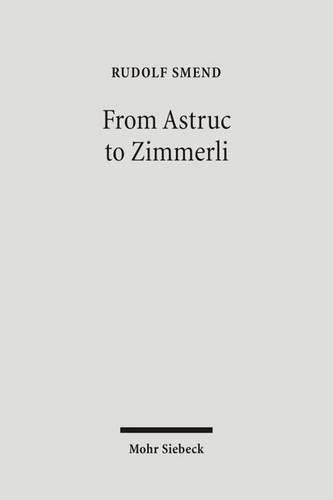Readings Newsletter
Become a Readings Member to make your shopping experience even easier.
Sign in or sign up for free!
You’re not far away from qualifying for FREE standard shipping within Australia
You’ve qualified for FREE standard shipping within Australia
The cart is loading…






In the humanities, if they are to remain alive, it is necessary to have a relationship to the thought as well as to the thinker from the past (Karl Rahner). Rudolf Smend attempts to establish such a relationship for one single branch of the humanities, which however can be seen as particularly paradigmatic. He does this in rough descriptions of 15 scholars who had a certain share in contributing to the history of Old Testament scholarship. He begins with the French physician Jean Astruc and the English Bishop Robert Lowth. Using the names for God, Astruc was the first to show that Genesis was based on various sources and manuscript traditions, and Lowth discovered the fundamental principle of Hebrew poetry (the parallelismus membrorum ). At the end of the book the author discusses scholars whom he knew personally: Albrecht Alt, Gerhard v. Rad, Martin Noth, Isac Leo Seeligmann and Walther Zimmerli.
$9.00 standard shipping within Australia
FREE standard shipping within Australia for orders over $100.00
Express & International shipping calculated at checkout
In the humanities, if they are to remain alive, it is necessary to have a relationship to the thought as well as to the thinker from the past (Karl Rahner). Rudolf Smend attempts to establish such a relationship for one single branch of the humanities, which however can be seen as particularly paradigmatic. He does this in rough descriptions of 15 scholars who had a certain share in contributing to the history of Old Testament scholarship. He begins with the French physician Jean Astruc and the English Bishop Robert Lowth. Using the names for God, Astruc was the first to show that Genesis was based on various sources and manuscript traditions, and Lowth discovered the fundamental principle of Hebrew poetry (the parallelismus membrorum ). At the end of the book the author discusses scholars whom he knew personally: Albrecht Alt, Gerhard v. Rad, Martin Noth, Isac Leo Seeligmann and Walther Zimmerli.